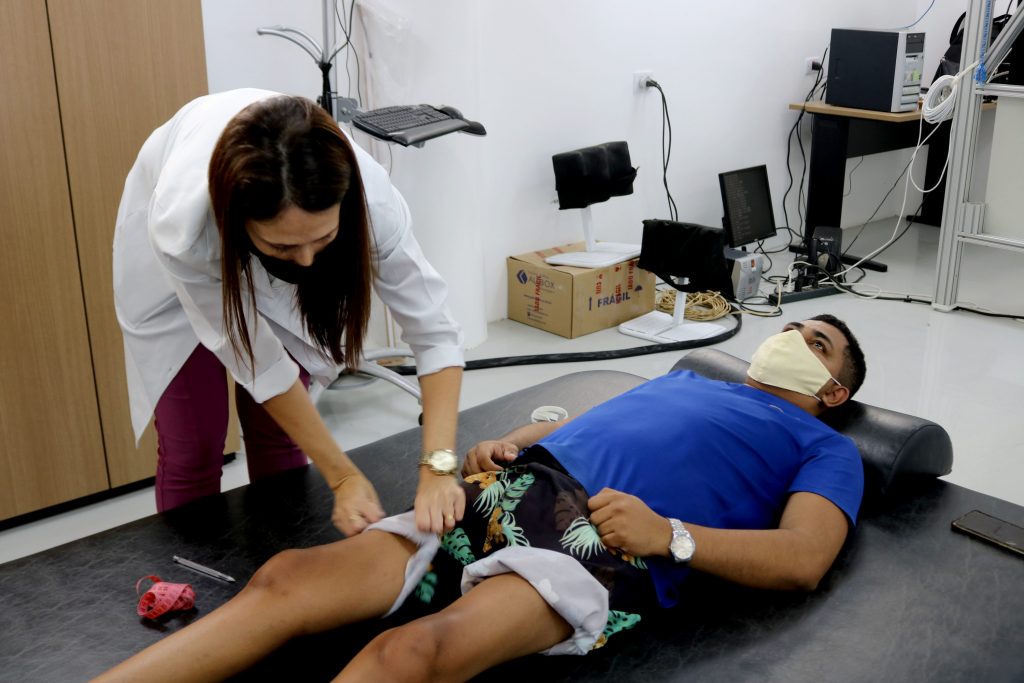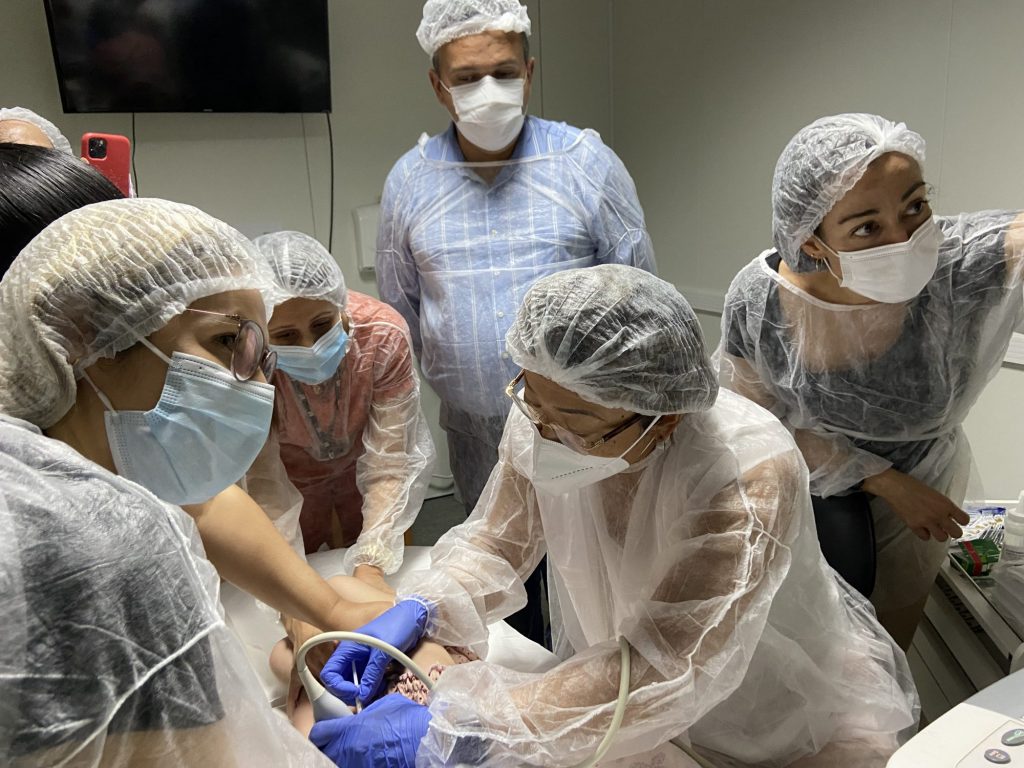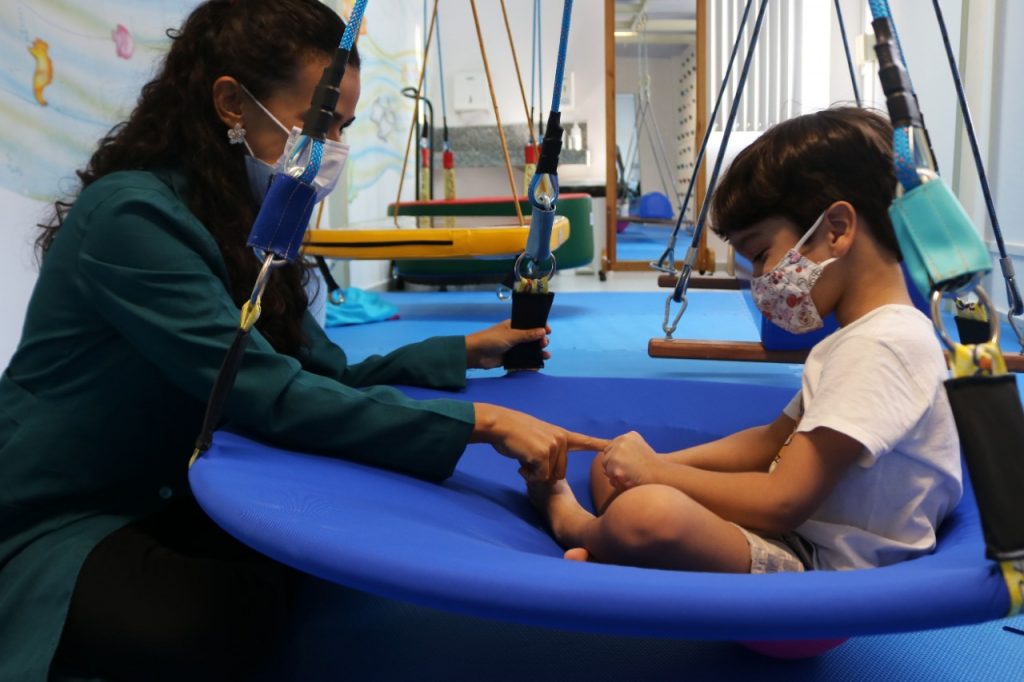The Santos Dumont Institute is inserted in the Healthcare Network for People with Disabilities as a Center Specialized in Rehabilitation (CER, as portuguese abbreviation), covering the cities of Macaíba, Natal, Parnamirim, São Gonçalo do Amarante e Extremoz. A government ordinance (Portaria/GM/MS Nº 1.842, from August 6th 2021) officially changed the category of the Center Specialized in Rehabilitation, elevating it from CER III to CER IV. The institution assists patients with physical, visual, intellectual and auditory disabilities.
The CER IV ISD is a joint operation of its two units: the Anita Garibaldi Center for Education and Research in Health (Anita) and the Edmond and Lily Safra International Institute of Neurosciences (IIN-ELS), prioritizing the integration between the healthcare of people with disabilities, teaching activities and translational research, as well as the integration between the health service, teaching and community. All the actions are agreed with different management levels of the Brazilian Unified Health Service (SUS) to fill the assistential voids and build responses to the social demands.
The Santos Dumont Institute is pioneer in offering a Master’s Degree Program in Neuroengineering with a multidisciplinary research field that integrates neurosciences and engineering methods in order to study the nervous system and develop solutions for the limitations and dysfunctions associated to this system that are applicable to the people assisted by the CER IV ISD.
The institution is also a pioneer in the Multiprofessional Residency Program in the Healthcare of the Person with Disability, whose objective is to educate and form health professionals capable of developing the actions defined in the National Right’s Plan for People with Disabilities – “Living Without Borders” and that are committed with the reduction of inequalities in health services faced by this public.



Clinics
The actions of CER IV ISD are organized in specialized clinics, destined to the use of the people from the 7th Health Region of Rio Grande do Norte, with some of them with statewide cover. Each clinic presents specific inclusion criteria, that are described below:
Individuals of all ages with the Parkinson’s Disease diagnosis.
Individuals over 17 years old with paraplesia or quadraparesis due to spinal cord injury that live in the city of Macaíba.
Children and teenagers from 0 to 16 years old with congenital or acquired spinal cord injury. For people tied to the Neurinho Association, there are no territorial restrictions (statewide coverage).
Children from 0 to 5 years old with congenital microcephaly. For people tied to the Neurinho Association, there are no territorial restrictions (statewide coverage).
Children from 0 to 3 years old that were born with gestational age inferior to 37 weeks and high perinatal risk for neurological disorders (neonatal hypoxia, low birth weight, small for gestational age, periventricular hemorrhage, among other risk factors).
Children from 0 to 3 years old followed by the maternal-infant service of Anita with delays on the neuropsychomotor development (for the people who live in the city of Macaíba, the age group is exteded to 16 years old).
Children from 0 to 12 years old with bladder and bowel disorders – for diagnosis investigation and therapeutic management of the condition (statewide coverage). For the users of the other specialized clinics from the CER IV ISD there is no age limit.
Children from 0 to 5 years old with suspicions or confirmed diagnosis of Autism Spectrum Disorder for early stimulation. Children from 6 to 12 years old for evaluation and confirmation of diagnosis.
Individuals of all ages with refractory epilepsy, who have been taking at least two medication for six months and still have epileptic crisis (statewide cover).
Individuals of all ages with hearing disabilities for auditory tests, auditory rehabilitation, selection, indication, dispensation and adaption of the Individual Sound Amplification Device (AASI, as portuguese abbreviation).
Auditory tests:
- Ear test (otoacoustic emissions);
- Brainstem Auditory Evoked Potential;
- Tonal and vocal audiometry;
- Immittancemetry;
- Visual Reinforcement Audiometry;
- Insertion gain;
- Acuphenometry (exam indicated to measure the frequency and intensity of tinnitus).










